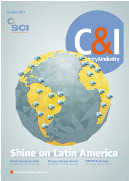Dow AgroSciences says it disagrees with a US court ruling that revokes approval of one its insecticides, sulfoxaflor, a neonicotinoid linked to toxicity in bees. The honey and beekeeping industries had challenged the US Environmental Protection Agency (EPA) approval, claiming this group of chemicals is responsible for the decline in bee numbers.
The US Court of Appeals in San Francisco ruled on 10 September 2015 that the EPA should never have allowed the Dow insecticide onto the market. The court said that ‘the precariousness of bee populations’ meant that leaving the EPA’s registration of sulfoxaflor in place risks ‘more potential environmental harm’. The EPA must obtain further data on the effects of sulfoxaflor on bees, the court said.
In its ruling, the court found that the EPA relied on ‘flawed and limited data’ to approve the unconditional registration of sulfoxaflor, and that approval was not supported by ‘substantial evidence’. The EPA had initially asked for more data from Dow, but, in May 2013, decided to go ahead with unconditional registration even though Dow never completed the additional requested studies.
The lawsuit was filed in 2013 against the EPA by organisations including the American Honey Producers Association and the American Beekeeping Federation. ‘The Court’s decision … is incredible news for bees [and] beekeepers,’ says Greg Loarie, the lawyer representing these organisations.
The EPA is reviewing the court’s decision, but Dow said in a statement that it ‘respectfully disagrees’ with the ruling. It will ‘work with EPA to implement the order and to promptly complete additional regulatory work to support the registration of the products’.
Across the Atlantic, however, the EU approved sulfoxaflor in July 2015, while leaving final decisions on its use to national regulators. While most neonicotinoids were banned in the EU in 2013, the European Food Standards Authority, the EU pesticide regulator, has stated that the available assessments do not exclude ‘a high risk’ and there was ‘a data gap’ on the risk to honey bees.
Matt Shardlow, ceo of the British conservation charity Buglife, says: ‘The public will be justifiably confused and concerned by these seemingly paradoxical decisions by pesticide regulators on both sides of the Atlantic. Now that the impacts of existing neonicotinoids on bees are well established the regulators should be making sure that all new pesticides are bee-safe. Unfortunately, regulators and some governments, particularly the UK government, appear to be completely enthralled by the pesticide industry and efforts to improve the wholly inadequate authorisation process are being politically blocked.’





